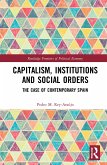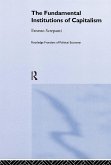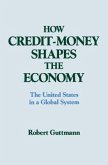Three paradoxes surround the division of the costs of social reproduction: * Women have entered the paid labour force in growing numbers, but they continue to perform most of the unpaid labour of housework and childcare. * Birth rates have fallen but more and more mothers are supporting children on their own, with little or no assistance from fathers. * The growth of state spending is often blamed on malfunctioning markets, or runaway bureaucracies. But a large percentage of social spending provides substitutes for income transfers that once took place within families. Who Pays for the Kids? explains how this paradoxical situation has arisen. The costs of social reproduction are largely paid by women: men have remained extremely reluctant to pay their share of the costs of raising the next generation. Traditional theories - neo-classical, Marxist and Feminist - can only provide an incomplete account of this, and this book offers an alternative analysis, based on individual choices but within interlocking structures of constraint based on gender, age, sex, nation, race and class.
Hinweis: Dieser Artikel kann nur an eine deutsche Lieferadresse ausgeliefert werden.
Hinweis: Dieser Artikel kann nur an eine deutsche Lieferadresse ausgeliefert werden.








